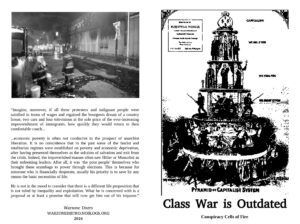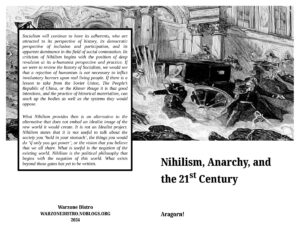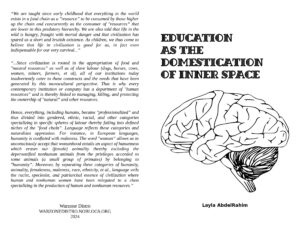
From back cover:
“Imagine, moreover, if all these protesters and indignant people were satisfied in terms of wages and regained the bourgeois dream of a country house, two cars and four televisions at the sole price of the ever-increasing impoverishment of immigrants, how quickly they would return to their comfortable couch…
…economic poverty is often not conducive to the prospect of anarchist liberation. It is no coincidence that in the past some of the fascist and totalitarian regimes were established on poverty and economic deprivation, after having presented themselves as the solution of salvation and exit from the crisis. Indeed, the impoverished masses often saw Hitler or Mussolini as their redeeming leaders. After all, it was ‘the poor people’ themselves who brought these scumbags to power through elections. This is because for someone who is financially desperate, usually his priority is to save by any means the basic necessities of life.
He is not in the mood to consider that there is a different life proposition that is not ruled by inequality and exploitation. What he is concerned with is a proposal or at least a promise that will now get him out of his impasse.”


